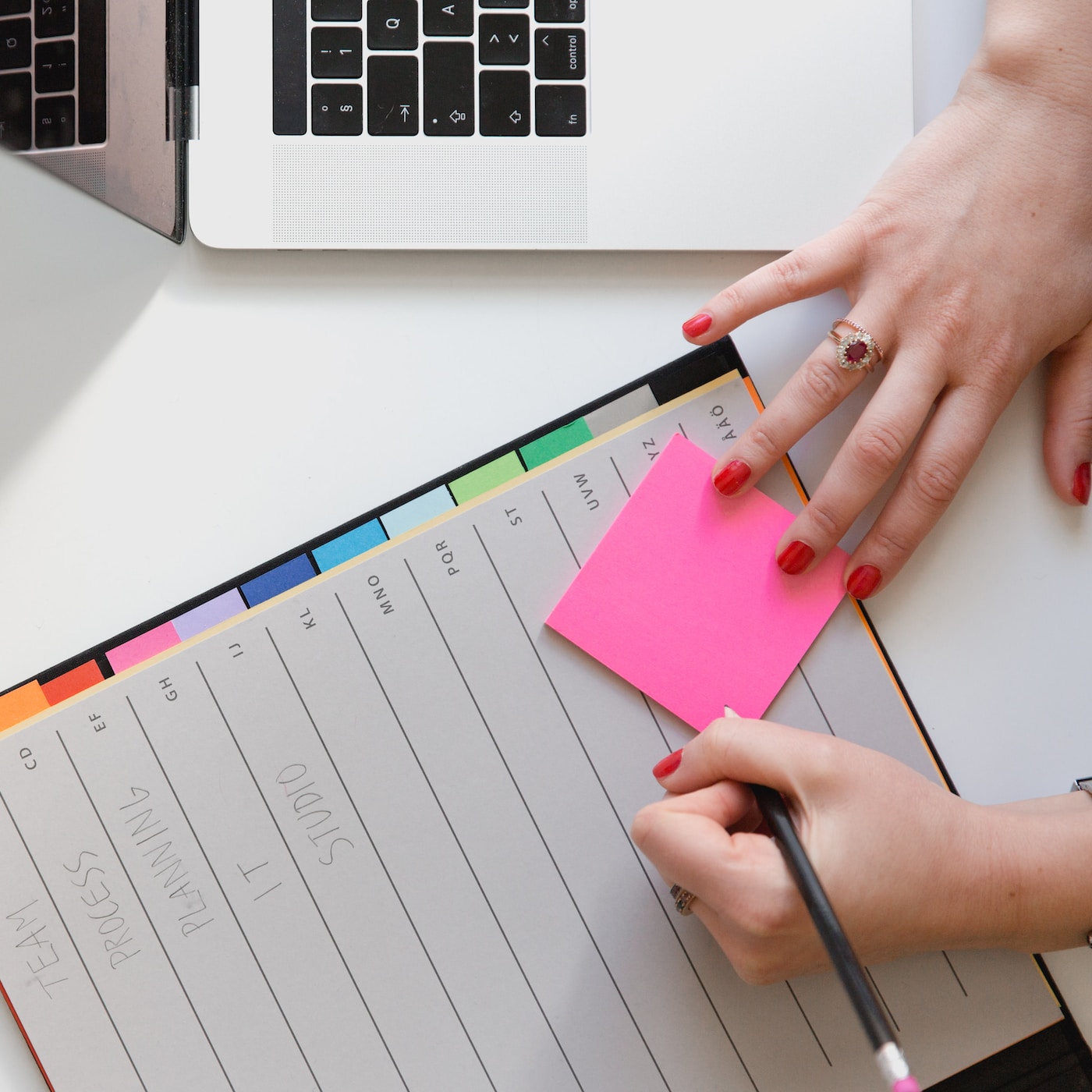

These tips for taking notes will make your life easier during high school, college, and meetings. Unfortunately, note taking is one of those things that tends to stick around throughout our entire lives. These tips will help you take better notes, improve memorization while studying, and make you a faster note taker. I hope these tips for taking notes will change your life as much as they have mine.
One of the best tips for taking notes is to color block them. Every time your professor, boss, or teacher makes a new point, use a different color. You can use different colored pens, highlighters, or change the font color if you’re using a computer. This is an especially important tip if you are trying to memorize information. Color has a way of triggering our memories, thus helping us to retain information quicker. It’s also easier to find information in your notes if you can remember what colors you used for the different points.
Another great tip for taking notes is to learn and use shorthand. It takes too much time to fully write out every word. Your teachers will be talking at normal speed and it can be hard for your fingers to keep up. Learning basic shorthand will make note taking an easier process. Just be sure you remember what each symbol means before applying it to your notes, you don’t want to get confused later on!
If you have a class where you consistently take notes, it may be worth it to partner up with a friend. Each class period, one person takes good, thorough notes while the other person focuses intently on the lecture. After class, you copy your friend’s notes and then do the same thing for your buddy the next day. This makes the daunting task of note taking not feel quite as bad. Just be sure that you and your note taking friend will be able to read each other’s handwriting and understand abbreviations that might be used.
When someone is giving a lecture, they may give excess information that you don’t need, use flowery language, or go off on tangents. When taking notes, skip the stuff that isn’t relative to your assignment. Just take down the “meat” of the lecture. As you get adjusted to your professor or boss, you’ll be better at determining what information is relevant during the lectures. If you focus on writing down every word that is said, you won’t be able to keep up. So just skip the small stuff and focus on writing down the main points. It’s good to note that if the person conducting the lecture writes something down on the white board (chalkboard, smart board, projector, etc.), it’s probably very important to include in your notes.
Sometimes it’s necessary to record lectures. If you have a professor or a teacher that talks too fast and you can’t keep up, record the lecture so you can take notes when you get home later. It doesn’t hurt to hear the lecture twice either. If you are an audio learner as opposed to a visual learner, being able to listen to the lecture over and over will also be beneficial. Just be sure your teacher is okay with you recording the lectures first.
There are many great note-taking tools on the market today. If you take notes by hand, these tools can be as simple as a three ring binder. They work better for notes than a notebook because you can rearrange pages as needed and archive or file them easier later on. If you take notes on a computer, there are countless programs and apps on the market to help you take notes. My personal favorite note-taking tool is Evernote. Through the app, you can insert pictures (which is extremely helpful if you are taking art classes), copy and paste, and easily search your notes. That’s just the basics of what Evernote can do. Research what tools will help you be a more efficient note-taker.
Just like chapters in a book, it’s a good idea to use titles and subtitles while note taking. That way it’s easy to find where in your notes you can find what you’re looking for. Leave space at the end of each section in case you missed information or want to expand later on. Using titles and subtitles is one of the best ways to keep your notes neat and organized.
These tips for taking notes are the basics of being an efficient note-taker. If you feel overwhelmed taking notes, try out these tips to see if you notice an improvement. What’s your best tip for taking notes?